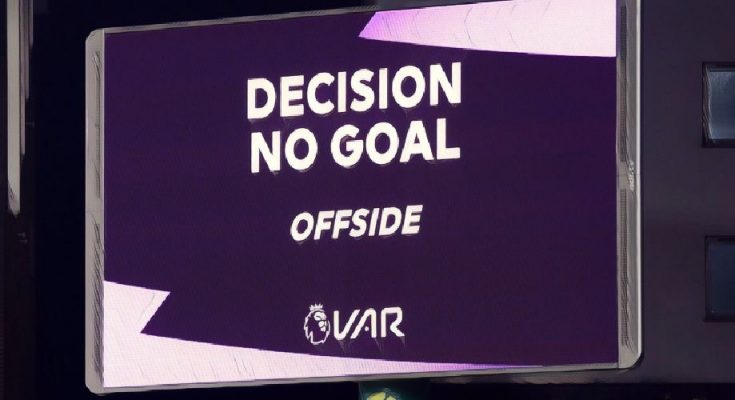Former Arsenal boss Arsene Wenger has revealed that offside decisions could well be ‘automated’ from next year, in what could potentially be a huge move to improve the current VAR system.
Ever since the introduction of video technology to aid referees, the implementation of the offside rule has been a huge bone of contention, with fans, players and pundits alike all critical of the number of tight calls which have gone against attacking players.
In the Premier League, in particular, there have been a number of contentious offside decisions made since the introduction of VAR at the start of the 2019/20 campaign, although the implementation of ‘thicker lines’ this season has appeared to aid referees in marginal decisions.
It could be taken one step further in the near future, however, with Wenger – who is head of global development at FIFA – revealing that there are hopes that offside calls could be ‘automated’ at next year’s World Cup in Qatar.
“We must continue to progress in the speed of decision-making, particularly in terms of offside,” he said to reporters.
“In 2022 at the World Cup, we’ll be much better able to make very quick offside decisions. And it will stop the game less because that is what the VAR can be faulted with. There is a real emotional lift, but after that you have to know if you want fair decisions or not.
“There is a good chance that the offside will be automated at the 2022 World Cup. I am bound to secrecy, but this will be the next of the big developments in refereeing.”
The Frenchman has come in for criticism for his radical plans to shake up the current international calendar – including the introduction of a biennial World Cup – although he believes improving the standard of refereeing and VAR is a ‘positive’ step forward for the game.
“I think it’s positive in that if it was announced tomorrow, people would be against it. We realised in the decisive matches that the VAR was able to prevent bad decisions from being made,” he added.
“But there are things that still need to be perfected. VAR is a new process. The level of the VAR people may not be at the level of the referees. But it will come in a few years.
“There is an issue because it requires a lot of people and it is still expensive. VAR is a useful aid and it must remain to make more fair decisions. Before, there were 93 per cent fair decisions and today it is 97%. So that’s hundreds of decisions over an entire championship. It is important.”



